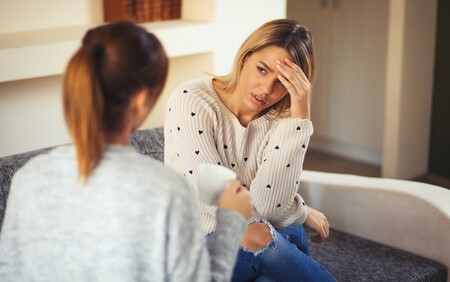Female factors: reproductive health
The human body is a remarkable biological system – and female fertility is one of its more amazing mechanisms.
Understanding how the female reproductive system works and knowing what factors may affect your fertility, can help to build a plan for maximising the chances of successfully conceiving.
Natural conception takes place when a healthy sperm fertilises a healthy egg in a woman’s body. In order for this process to take place you need ovulation to occur and a clear pathway for the egg and healthy sperm through the Fallopian tubes.
Every month from puberty to menopause, an egg is released from a follicle within one of your ovaries. In natural ovulation, each month your ovary starts to grow several follicles, one of which goes on to ovulate.
One in six Australian couples of reproductive age experience difficulties conceiving a child. If you have been trying to become pregnant for more than six months then you may want to get specialist advice, to help you conceive sooner or answer any questions.
All you may need is some expert advice or a treatment such as ovulation induction. Or you may need to consider more advanced techniques, such as intrauterine insemination (IUI) or In Vitro Fertilisation (IVF).
Our Fertility Check Up will help you to understand the factors affecting your fertility with a few simple tests.
Here’s a brief overview of the main issues that impact female fertility.
Common female fertility problems
Ovulation
Regular ovulation is associated with regular menstruation. If you have irregular periods, occasional periods or no periods it may mean you have an ovulation condition. If you have an ovulation condition and are trying to conceive it may require medication to induce normal follicle development and regular ovulation.
If you have regular menstrual cycles, e.g. in unexplained or poorly explained fertility, your fertility specialist may recommend ovulation induction medication in an attempt to increase the chance of pregnancy. Read more here…
Endometriosis
Endometriosis is a common condition affecting women of reproductive age, especially women over 30 who have not yet had children. Mild endometriosis is often associated with infertility and more severe degrees of endometriosis will have a greater impact on your ability to conceive naturally. Read more here…
Polycystic Ovarian Syndrome
Polycystic Ovarian Syndrome (PCOS) is a common condition where the ovaries contain small cysts or follicles that may not grow to maturity or produce eggs capable of being fertilised.
If you are of reproductive age PCOS can affect your fertility and make it more difficult for you to become pregnant naturally. Read more here…
Blocked Fallopian Tubes
Natural conception occurs when a healthy sperm fertilises a healthy egg in the female body without the intervention of fertility treatment. If a woman’s Fallopian tube/s are blocked, this may prevent the sperm meeting with the egg. If you have a blockage in your Fallopian tubes, a Melbourne IVF fertility specialist can help diagnose this issue and provide suitable treatment options to help you fall pregnant. Read more here…
Uterine Fibroids
Fibroids are very common in women of reproductive age with up to 80% of women experiencing fibroids during their lifetime.
Certain types of fibroids are known to affect fertility and your chance of conceiving. Read more here…
By answering 7 simple questions, the Female Fertility Assessment Tool is designed to give you an indication of whether there are any factors that might be affecting your chance of falling pregnant and whether you should consider seeking the advice of a fertility specialist for further assessment.
Female Fertility Check
Melbourne IVF offers fertility consultations and treatment. For general enquiries or to book your first appointment, please complete the form below or call us on 1800 111 483.
